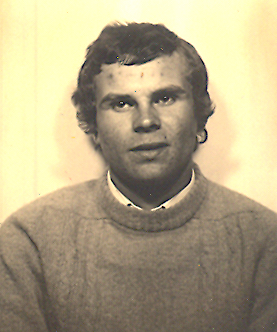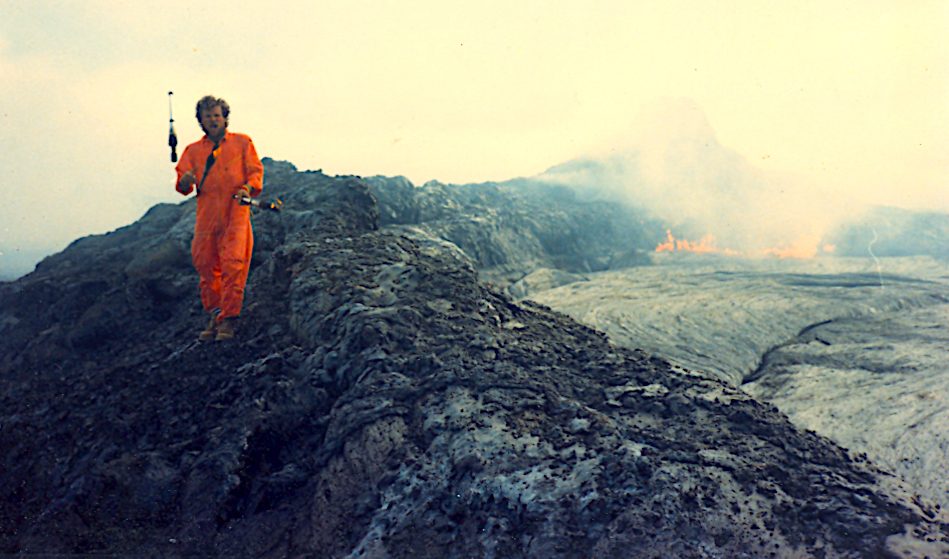
“Is your record player broken?” asked my friend Nigel Burtenshaw as he listened to me playing Dylan’s ‘Sad Eyed Lady Of The Lowland’ once too many times. The girl who took my virginity had dumped me a few weeks before and I was grieving so bad I lost my marbles. “I’m going to Israel to work on a kibbutz for the summer wanna come?” he asked. That was it, another life changer!
I signed up totally unaware of what I was about to experience. I’d only ever flown once before that magic carpet ride to Tel Aviv in August of 1968. This was true economy class, on a multi purpose, ex-military prop plane with canvas-covered fold down seats that lined the throbbing fuselage. We landed after dusk and my first impression was the sweet smell of frangipani and other fragrant flowers not found in any English country gardens. The air was hot and sticky and my mind was open to new adventures.
Waiting for us on the tarmac were a line of covered cattle trucks. I don’t recall any immigration or security checks at all. Men with clipboards directed us to our designated vehicle and we clambered aboard. I got to sit next to a charming Aussie girl with a very friendly accent. During the four-hour drive into the dark unknown, we shared the heat and the muskiness as our youthful lustfulness grew with each passing mile. Traffic dwindled as the road narrowed and we headed north into the rocky hills.
We parked outside the police station, in Israel’s northern most town, of Ḳiryat Shmona. Our driver disappeared for a while, re-emerging with a full-size tank and a military troupe carrier. We discovered these were our escort vehicles for the remainder of the journey up the winding, dusty mountain road that led to the kibbutz of Misgav Am. Being a naive English lad, my curiosity was peaking. Aussie girl just smiled and snuggled in closer to me; but, I noticed each of my fellow volunteers had raised their eyebrows, as they too, pondered on the reason for this degree of protection.
Our answers came as we entered the concentration camp gates of the fortress ‘farm’ on which we had innocently volunteered to pick grapefruit for the summer. Enclosed by 20′ high steel fences topped with barbed wire and dotted with tall guard towers, it appeared much more of a military base than a farm…and it was: Misgav Am means ‘fortress of the people.’ Situated on the mountain top just 60’ from the Lebanese border, it provided a commanding view of the valley and Arab village below for the hundred or so soldiers posted there.


In the cafeteria, we were welcomed by the leaders of the kibbutz farmers and received a seriously stern lecture from the Israeli army captain. For our safety, he said the female volunteers would sleep in an underground bomb shelter while us men would share a quonset hut and crawl through adjoining trenches to get to the nearest bomb shelter in the event of an attack. We were told that armed guards would escort us while we worked picking fruit in the orchards, located in the valleys below, and we should not stray far from the front gate of the compound. This news put us all in a state of a shock. It temporarily ended my amorous advances towards Aussie girl and caused a fellow volunteer, who was also a British army officer, to exclaim, “Good god chaps, we’re in a bloody war zone! We need to really watch out for the women.” It was sound advice that I earnestly took to heart.



It was only a few days later that we learned the kibbutz had recently been infiltrated by members of ‘Fatah’ and two kibbutzniks had been injured. Apparently, they had cut and crawled through the wire fence at night so everyone was on edge and super diligent. ‘Fatah’ was the militant group that became the dominant force in Palestinian politics after the Six-Day War in 1967 and were part of the Palestine Liberation Organization (PLO), who were based in Lebanon just a few yards from where we were living.
On our third night at Mis Gav Am, we had a volunteers party and I was schmoozing with Aussie girl. We were drinking cheap, sweet Israeli wine and listening to a kibbutznik playing boogie piano music when shots rang out. We all dropped to the floor, as we had been instructed, while our intoxicated piano player grabbed his uzi from on top the piano and rushed out in to the night. As we lay still listening, more shots were heard and, with adrenaline pouring into our veins, we all started laughing hysterically. Then a whistle blew, signalling us to crawl via the nearest trench to a bomb shelter. I realised at that moment that we had unknowingly volunteered to join a war and were totally unprepared for the situation we were in.
The following days were peaceful on the kibbutz and, after picking grapefruit all morning, we would sit around the swimming pool and look across the River Jordan Valley to the Golan Heights, where life was not peaceful at all. Israeli Mirage and F-4 Phantom aircraft supplied by the US government made daily raids, bombing the hell out of Syrian territory on the mountainside. It was a new kind of firework display for us innocent visitors and we witnessed life in a land of perpetual war. Most of the world considered this to be a period of peace in the Middle East; however, the lesson I learned was the 1967 six-day war of occupation never really ended.




Towards the end of my stay in Misgav Am, the IDF mounted an operation using the kibbutz as its base camp. Tanks and cannons arrived along with Moshe Dayan, the most famous Israeli military leader and politician of that era.

Dayan was Defence Minister during the wars of 1967 and 1973 and was a highly controversial and complicated character. He was responsible for ordering the Israeli army to attack and capture the Golan Heights. But, in 1969, he expressed regret that students were unfamiliar with the Arab villages that once inhabited the land saying, “We came to this country which was already populated by Arabs, and Jewish villages were built in the place of Arab villages that no longer exist, even in geography books. There is no one place built in this country that did not have a former Arab population.”
On 7 April 1980, five members of the Arab Liberation Front penetrated Misgav Am in the night and entered the nursery. They killed the kibbutz secretary and an infant boy. They held the rest of the children hostage, demanding the release of about 50 terrorists held in Israeli prisons. An Israeli infantry unit succeeded in freeing the hostages and all the Arabs were killed. Two kibbutz members and one soldier died; four children and 11 soldiers were wounded. Immediately after the attack, Israeli troops entered southern Lebanon killing a large number of Arabs and intensifying pressure on the Palestinian Liberation Organisation in Lebanon. Israel withdrew after five days, because of heavy political pressure by the United Nations and USA.
Eventually, I became more inquisitive and adventurous with my afternoon walks outside the kibbutz. On a journey to find a nearby crusaders castle, I stumbled across two starkly contrasting stories. I was led to the first by a sullen old Arab herding his scrawny goats into the remains of a burned-out village less than a mile from the kibbutz. I learned later that, during the 1967 war, the inhabitants were driven out and their homes were all destroyed. My second eye-opener came as I rounded a hill top and noticed an IDF unit in a camouflaged dug out with long-barrelled cannons raining shells on the Lebanese village just below our kibbutz. Suddenly, the reason for the ‘Fatah’ attacks on Mis Gav Am made total sense to me.

My innocence was lost in other ways on my first trip to the holy land. Aussie girl was willfully enjoying the sexual liberation of the ’60’s and she encouraged me to do likewise. I have no idea how other young men occupied themselves but I immersed myself in the delights of discovering the pleasures of casual sexual encounters and quickly healed from the grief of losing my first love.

On camping trips to the Sea of Galilee, Masada, and the Dead Sea, I experienced how easy it was to leave the inhibitions and moral standards of my Victorian family back in England and fully embrace the sexual revolution my generation were embarking upon. Walking through the via rosa streets in old Jerusalem, I met a New Yorker and was grateful to share her sleeping bag that night. She introduced me to Lebanese hashish before announcing how much she was missing her weekly therapist sessions. Having never met anyone engaged in therapeutic counselling, I wondered if I was in bed with a mental nut or was she merely stoned. I had a lot to learn in both departments and became an eager student.
Not all my travels in Israel involved sexual experimentation. I took a solo trip to the ancient port city of Acra and enjoyed a welcome break from religious artefacts, preferring the hustle of the harbour and the magnificence of the Roman aqueduct. An Arab family of watermelon sellers befriended me, using sign language to invite me to sleep in their tent on the street, which I did. It gave me a deep dive into Muslim culture and an appreciation for diversity that honours respect for all human beings regardless of religion or race.
Aussie girl and I kept in touch and, when she came to London, we saw Cream and Family rockin’ at the Royal Albert Hall and indulged in post-concert, renegade activities that happily involved neither uzi’s or bombs.
Make a one-time donation
Make a monthly donation
Make a yearly donation
Choose an amount
Or enter a custom amount
Your contribution is appreciated.
Your contribution is appreciated.
Your contribution is appreciated.
DonateDonate monthlyDonate yearly
good reading… ;•)
>
LikeLiked by 1 person
I worked at kibbutz EinGev on the eastern side of Sea of Galilee during 1976 & 1977 & experienced the Entebbe hostage rescue. One kibbutznik was an Israeli Air Force pilot, another was one of the commandos on the rescue mission.
I had been learning Hebrew in a classroom after work from my first day at EinGev so I had got to the stage where I was listening to the Israeli radio station at work on the kibbutz fishing trawler.
The morning news announcement of the successful rescue mission created an euphoric response from us all & being able to share the moment without a need for translation was one of the highlights of learning Hebrew.
I too traveled on numerous occasions around Israel & most of my trips I did solo by choice & was one of my reasons for learning the language- to able to understand what was going on around me.
I also had the benefit of working alongside Holocaust survivors & after I was reasonably conversant in Hebrew some of them chose to share their stories. They talked about life before the Holocaust & they mainly chose to share their experiences after arriving in Israel. They did not share their Holocaust stories. They were focused on sharing the joy of having a homeland. They were always asking me questions about my travels around Israel & wanting to know how my travels compared to other parts of the world.
LikeLike